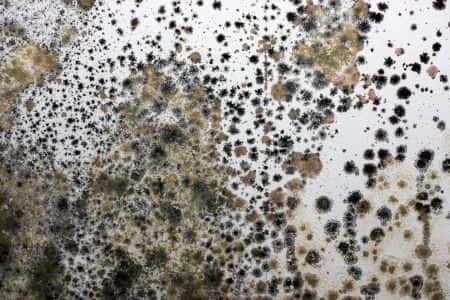Plumbing Expert Witness Discusses Mold From Hot Water Pipe Leak
Updated on
This case involves a couple who owned a three-story condominium and who began noticing condensation on the windows of their condominium and on the drywall around the windows. There was moisture from the window sills running down the walls and mildew on some of the windows and walls. When the couple cleaned the condensation off the windows, it returned the next day. The couple later began noticing mold forming around the inside of their windows and on the walls in the living room and kitchen, and the home gradually became infested with mice and other pests as its structure began to decay. Every room in the condominium with a window developed mold or mildew. The couple hired a plumber to find and fix the leak causing the condensation and mold. The plumber noticed that much of the water damage was located in the laundry room and told the couple that he thought their condominium had a hot water leak, likely due to corrosion, coming from underneath the cement in the laundry room. The couple told the management company about the water damage and she was told that it was her responsibility to pay for the repairs.
Question(s) For Expert Witness
1. How could a hot water leak in a condominium cause condensation on the windows and mold on the windows?
Expert Witness Response
 If a condominium is built on a slab, a plumber may have trouble finding a leak because water will travel more easily. The leak could be anywhere in the bottom floor of the condominium and because the water will tend to make a path, it will usually trickle from wherever it is coming out at. If most of the water damage is found in a certain area of the condominium (such as the laundry room in this case), this is most likely where the leak originated. Usually in these cases, the plumber will have to go underneath the condominium and check the pipes coming up from the foundation to find the leak. If there is mud or a deep pool of water in the crawl space under the condominium , the water may be coming into the crawl space from the backside of a pressurized hot water line attached to the hot water manifold. The plumber can then easily find the leak coming from a section of the piping where the moisture and mold are located. Even though this type of leak may occur, it is likely that the interior plumbing system is sound and that no other leaks are present. This type of leak usually causes both water damage and a rise in the homeowner’s monthly water bill during the period when water is coming out of the pipe.
If a condominium is built on a slab, a plumber may have trouble finding a leak because water will travel more easily. The leak could be anywhere in the bottom floor of the condominium and because the water will tend to make a path, it will usually trickle from wherever it is coming out at. If most of the water damage is found in a certain area of the condominium (such as the laundry room in this case), this is most likely where the leak originated. Usually in these cases, the plumber will have to go underneath the condominium and check the pipes coming up from the foundation to find the leak. If there is mud or a deep pool of water in the crawl space under the condominium , the water may be coming into the crawl space from the backside of a pressurized hot water line attached to the hot water manifold. The plumber can then easily find the leak coming from a section of the piping where the moisture and mold are located. Even though this type of leak may occur, it is likely that the interior plumbing system is sound and that no other leaks are present. This type of leak usually causes both water damage and a rise in the homeowner’s monthly water bill during the period when water is coming out of the pipe.
About the author
Inna Kraner, J.D.
Inna Kraner, J.D., is currently Associate Director of Development - William S. Richardson School of Law. She worked in client development at Proskauer Rose LLP, and held various marketing positions at Skadden, Arps, Slate, Meagher & Flom LLP. She has experience litigating corporate, industrial, financial, regulatory, and controversy matters. Inna graduated with a J.D. from Boston College Law School and a B.A. from Brandeis University.
Subscribe to our newsletter
Join our newsletter to stay up to date on legal news, insights and product updates from Expert Institute.
Sign up nowFind an expert witness near you
What State is your case in?
Subscribe to our newsletter
Join our newsletter to stay up to date on legal news, insights and product updates from Expert Institute.



